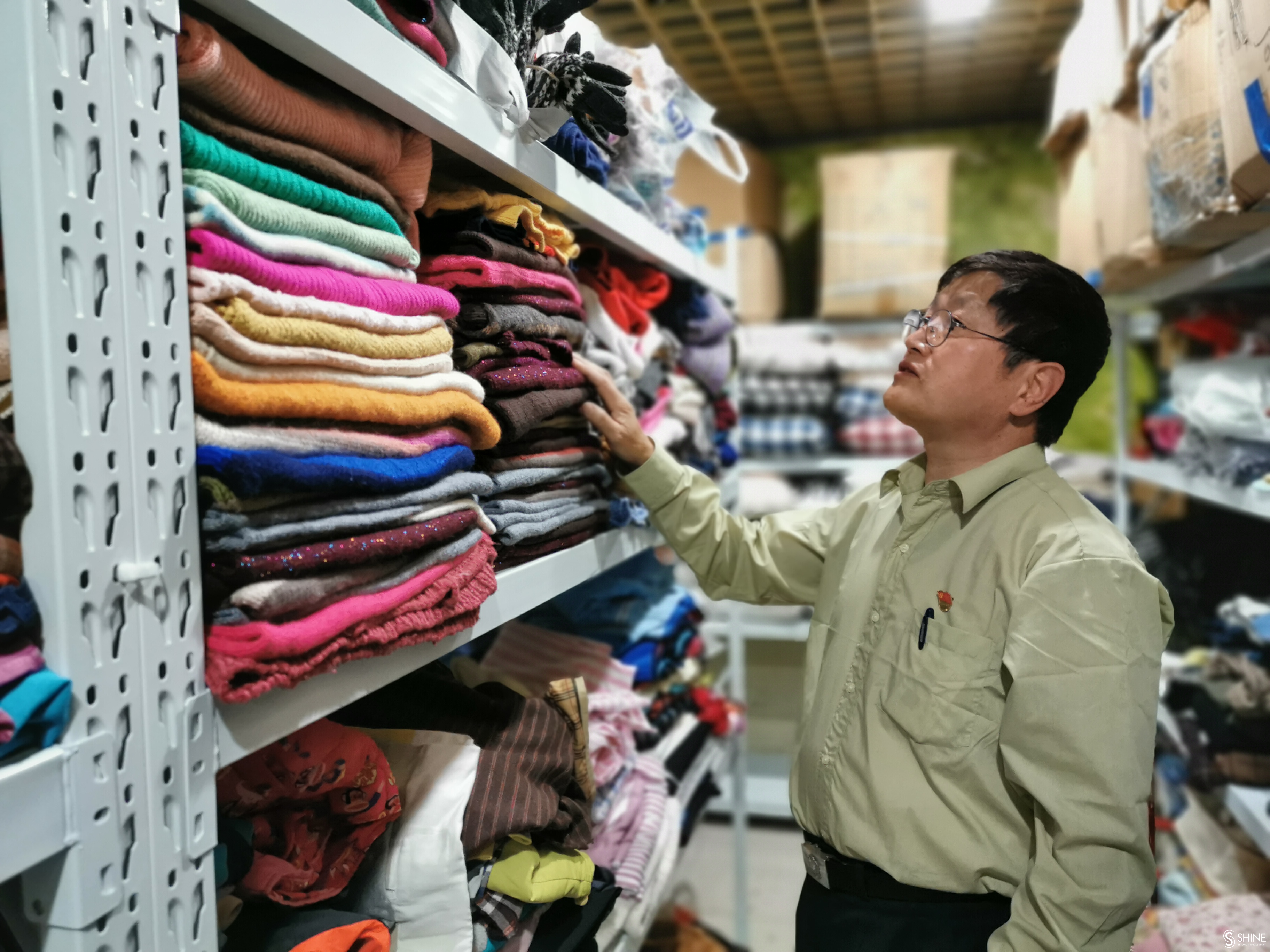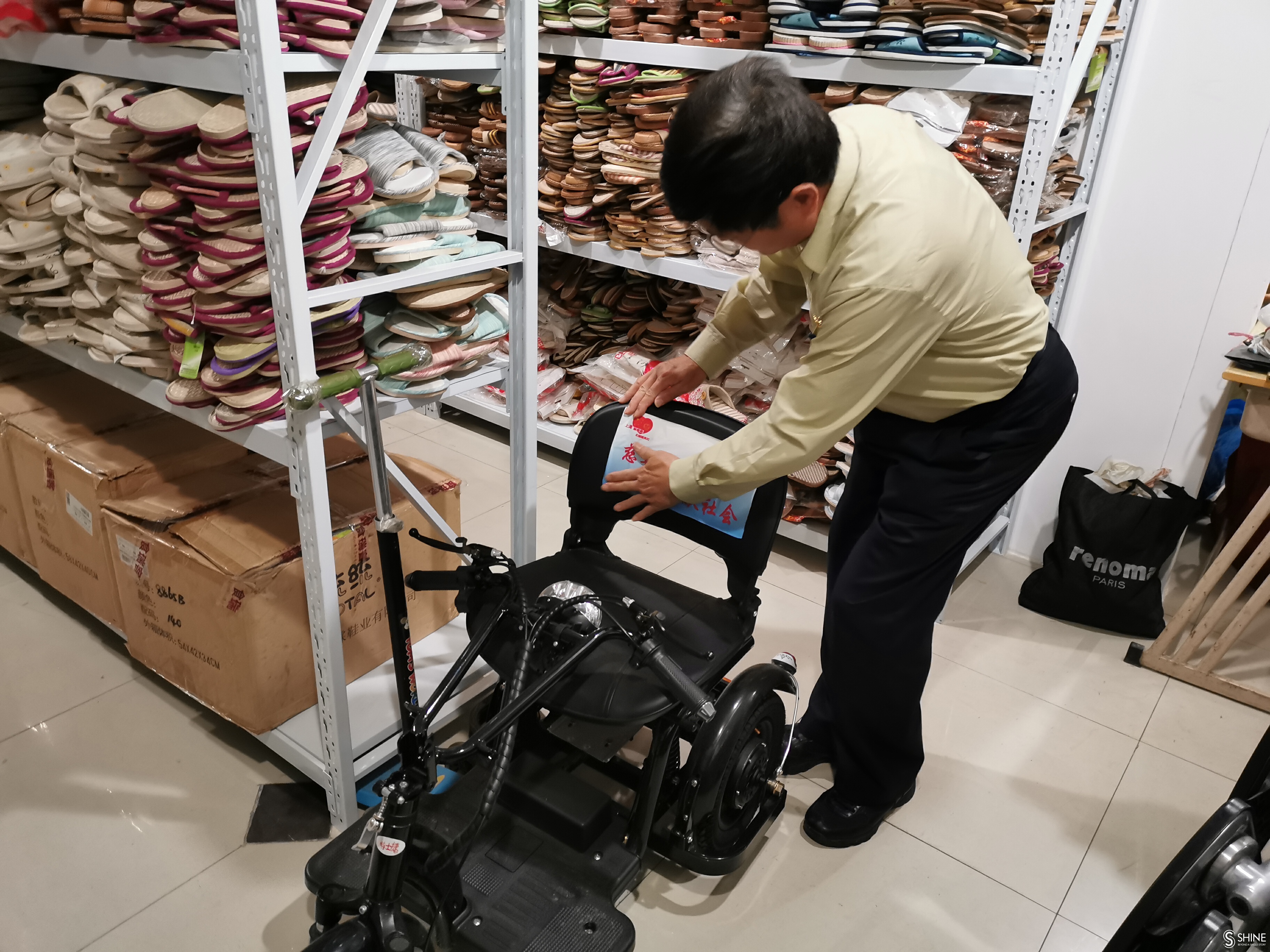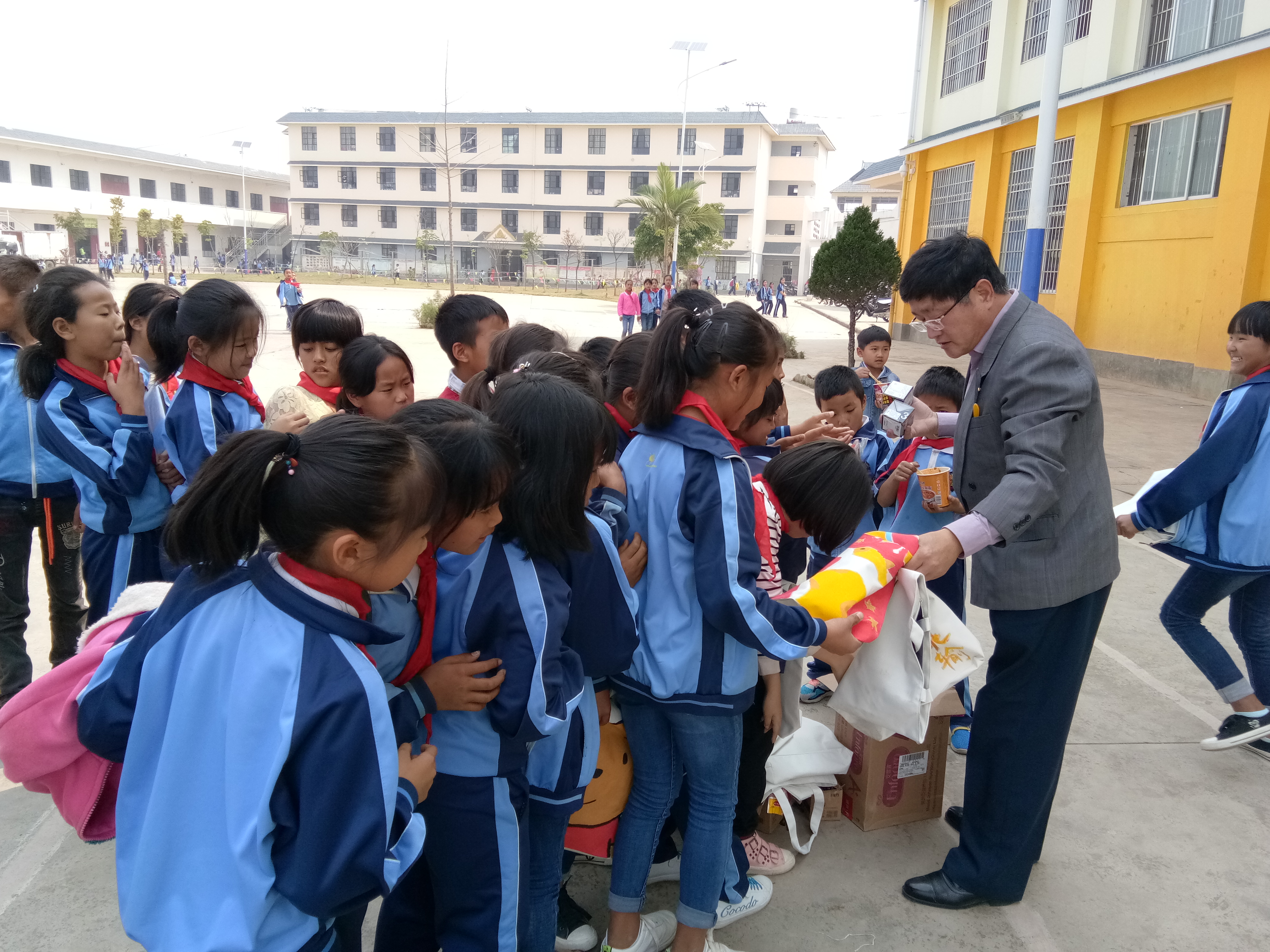Editor's note:
China has vowed to eliminate all poverty by the end of this year. It’s an ambitious undertaking, aided by the efforts of ordinary citizens who assist the government in achieving that goal. Shanghai residents with big hearts have fanned out to remote, poverty-stricken pockets of the country to try to improve the lives of local residents. In this series, Shanghai Daily meets some of these philanthropists.


Zhang in the warehouse of his office in TianlinSubdistrict, Xuhui District.
Chen Huizhi / SHINE
Zhang's warehouse stores all kinds of donations from philanthropic people who support his cause to help poor children in Yunnan Province.
Chen Huizhi / SHINE

Zhang hands over donations from people in Shanghai to students in poverty-stricken towns in Yunnan.
Ti GongWhen Zhang Zhiyong traveled from Shanghai to the southwest province of Yunnan in 2002 with 40,000 yuan (US$5,640) in his pocket to explore business opportunities, he didn’t expect that he would later return to spearhead humanitarian assistance.
Over the years, Zhang, now 62 and a resident of Xuhui District, has been joined by other philanthropists in supporting children of poverty-stricken families in remote areas. He still spends time every year visiting the youngsters whom he and his friends have helped.
In a recent interview with Shanghai Daily, Zhang said changes are indeed taking place in remote mountain areas of Yunnan.
Zhang said he still remembers his first encounter 18 years ago with children in Xishuangbanna, a tropical border town and tourist destination in China.
“The children in the streets, 7 or 8 years old, were totally naked, which was absolutely unthinkable in Shanghai,” he said. “This was not the Xishuangbanna of white clouds, elephants and peacocks of my romantic imagination.”
Some families shared a single pair of trousers, and the clothes they did wear were in tatters, he said.
Zhang spent up most of his money buying supplies for the local poor. Upon returning to Shanghai, he stayed in touch with schools there.
“I was indignant when I was told that an underage girl was asked by her parents to quit school and get married, and I immediately offered to fund her schooling,” he recalled.
That gesture led to his tireless annual trips to remotest areas of Yunnan, which he said are necessary to ensure that donations end up in the hands of people who truly need them.
His travels in the mountains were a real adventure during the first few years.
“You could only cover 70 kilometers a day, and unpaved roads became even muddier when it was raining,” Zhang said.
Over recent years, changes in infrastructure and local living conditions have been obvious.
Now, even the remotest villages have paved roads — cement, not asphalt because the tropical weather makes it costly to maintain asphalted roads. In places where conditions were considered unfavorable for people to live, residents were relocated and given money to build new houses. Local teachers are better paid too.
“When I first went there, local teachers had a monthly salary of only 1,000 yuan (US$141), but in recent years, their salaries have risen to 5,000-6,000 yuan, almost on par with teachers in Shanghai,” Zhang said.
Poorer counties in the province also received some economic relief from the growing popularity of Pu’er tea, a variety grown only in certain areas of Yunnan.
“Before 2006, the best Pu’er tea cost only 150 yuan per kilogram, but now one kilo of the best fetches 7,000 yuan,” Zhang said.
However, not all poor families have benefited from the trade.
Zhang said over 700 students have been helped under his initiatives over the past 18 years. Some 50 went on to university studies.
“They always phone me with greetings for the Chinese New Year, and some fondly call me ‘father,’” he said.
Last year, Zhang and his team supplied needy Yunnan people with about 100 tons of donations, including clothes and quilts.
Zhang said students there still suffer from a shortage of daily supplies, like writing desks, electric cookers and computers, as well as funds for schooling.
Students being helped at the moment receive 600-1,200 yuan every year, and each school covered under the program has 10,000 yuan of scholarship money to give to top students.
